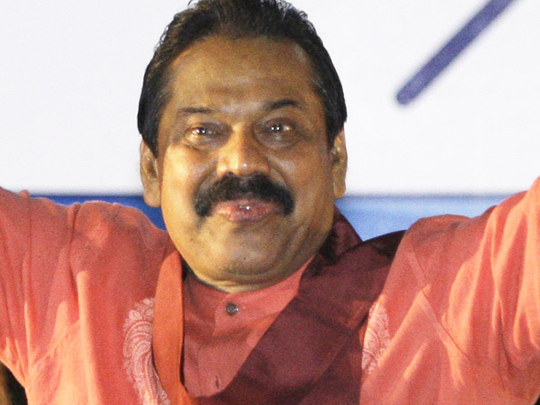
If a constructive rapprochement is not whittled out soon then the storm gathering behind the United Nations' instruction to Sri Lanka, to subject itself to a probe for alleged human rights abuses during the recently concluded civil war, may veer out of control.
Sri Lankan President Mahinda Rajapakse has been definite in his dismissal of Ban Ki-moon's call for ‘accountability'. His refusal to open up the actions of his government to an international probe may not enhance his image globally, but he enjoys a strong support base at home and has even secured the support of strategic allies Russia and China.
This is coupled with the fact that the findings of the probe, made public by the UN, did not have an ‘investigatory mandate' even though claims of ‘credible evidence' have been issued.
In effect, the UN cannot order a probe unless Sri Lanka agrees to one, or if the Security Council, or member states, push for it. Needless to say, the UN has not done its homework and is only appealing, in a manner of speaking, to Rajapakse's conscience.
The Sri Lankan president is riding the crest of a wave of success at home. The economy has surged after the war with the Liberation Tigers of Tamil Eelam (LTTE) ended and Rajapakse's grip on power is absolute. There is still, however, the nagging issue of the Tamil question and Rajapakse cannot wish it away. The eyes of the international community will forever be looking for signs that the minority communities have been given step-motherly treatment and Sri Lanka's international credibility could be sporadically battered.
The UN and Sri Lanka must see each other as collaborators if they are to make progress. The topic of post-war ethnic reconciliation must take precedence and solutions must be found. The world could reach out to Sri Lanka if the island nation is willing to help itself.







